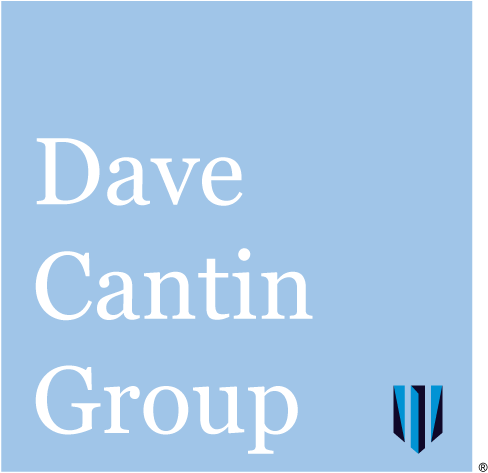Written by Dave Cantin for Forbes.com
Selling or buying a business is a significant undertaking that requires careful consideration, and it is not a venture to be taken lightly. Many leaders encounter a host of challenges, confusion and complications that are commonly associated with Mergers and Acquisitions (M&A) transactions.
While some business owners tackle the process on their own, the complexities and challenges involved in M&As make having an experienced and trusted advisor a highly recommended option, as a fitting advisor brings insights and responsibilities that can help ensure a successful transaction and improve your business’ long-term success.
Let’s look at the qualities that a trusted M&A advisor should bring to the table and how to choose the right one for your organization.
1. Provides Specific Industry Guidance
A trusted M&A advisor provides valuable and strategic guidance by continuously evaluating the business landscape and analyzing the factors that impact your sector. As M&A transactions involve a range of legal, financial and strategic considerations, it is important that the M&A advisor you engage be an expert in your specific industry sector. Seasoned advisors specializing in your industry have access to proprietary data and research, which they use to help you make more informed decisions.
You should also choose one that can identify viable acquisitions, assess which strategic fit is best for your business, and execute a negotiation strategy that maximizes value beyond the transaction. This last point is critical. A trusted advisor should always help you make informed decisions that support your long-term business goals—not just the contract currently on the table.
To determine if they possess the necessary skills and knowledge in your specific industry, first look for one who has represented companies within your sector. This shows they have experience with similar deal structures, possess current knowledge of what the competition is doing and know the major trends that are driving your industry forward. Second, confirm that the team assigned to your transaction has successfully closed similar deals within your specific industry niche.
2. Prioritizes And Saves You Time
M&A transactions can be incredibly time-consuming, requiring significant resources from the company’s leadership team. Underperformance can jeopardize a transaction’s completion, particularly in a fiercely competitive market, and prolong the process unnecessarily. The packed schedules of management teams mean they risk losing sight of their priorities and allowing their business performance to suffer during an M&A process.
An advisor should be capable of taking on many of the administrative tasks associated with the transaction, freeing up your team to focus on core business operations. For example, they should lead the due diligence process, which involves reviewing financial statements and other documents to identify risks and liabilities. Advisors should also be able to draft legal agreements, manage communications between the various parties and quickly prioritize what is essential throughout the transaction process. Talk to your prospective M&A advisor to learn how they typically address these kinds of responsibilities.
Advisors typically also offer the use of financial tools. For example, ask the advisor if they offer financial modeling to help you better analyze and assess the economic impact of your potential transactions. This modeling software should create detailed financial projections and perform sensitivity analyses, which enables the advisor to evaluate the potential outcomes of different deal structures and identify areas of risk or opportunity. I also recommend choosing an M&A advisor who offers advanced data analytics tools to perform deep-dive analyses on market trends, competitive landscapes and other key indicators.
3. Provides Objective Advice
During an M&A transaction, emotions can run high, and it can be easy to make decisions based on personal feelings. A trusted M&A advisor can provide objective advice that is grounded in industry knowledge, data and analysis. This helps you avoid common pitfalls, such as undervaluing a target company or making concessions that are not in your best interest.
Keep these things in mind when assessing for objectivity: Firstly, it is important to evaluate the advisor’s level of independence. Look for an advisor who has no conflicts of interest or hidden agendas that could influence their advice.
Secondly, evaluate the advisor’s approach to deal structuring. Look for an advisor who is willing to explore multiple deal structures and who can provide objective advice on the pros and cons of each option. This can help ensure that the transaction is structured in a way that is fair and beneficial for all parties involved.
Finally, consider the advisor’s communication skills. Look for an advisor who is willing to listen to your concerns and address them in a thoughtful and constructive way.
4. Mitigates Your Risk
M&A transactions carry a range of risks, including financial, legal, and reputational. An advisor should have a good track record for identifying such risks and developing a solid game plan that can help you mitigate or avoid them altogether. This can include everything from conducting thorough due diligence to negotiating effective indemnification provisions in the deal agreement.
Specifically, you will want to choose an advisor who has a well-defined and comprehensive risk management process in place. This process should include the identification of potential risks, the assessment of the likelihood and impact of those risks and the development of strategies to mitigate or avoid them. It is important to review the advisor’s risk management process and assess its effectiveness. Ask the advisor to provide examples of how they have successfully managed risk in previous transactions.
An experienced and knowledgeable advisor can provide strategic guidance, objective advice and access to a network of professionals that can help you navigate the complexities of the transaction and achieve your business goals. By partnering with the right one, you can greatly increase your M&A transaction’s likelihood of success, setting your business on a path to long-term growth and profitability.




